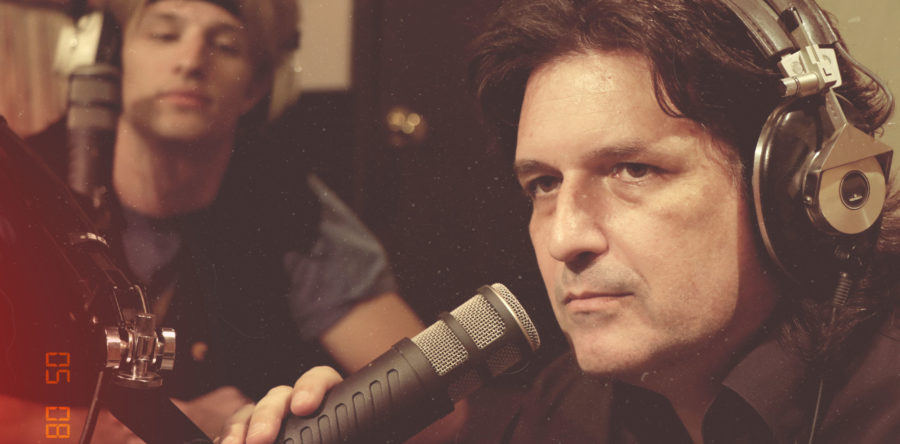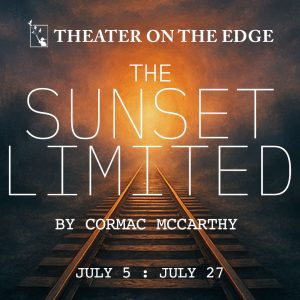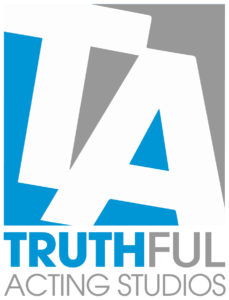PHOTO: Marco DiGeorge as Barry Champlain in Talk Radio. Photo courtesy of Theater On The Edge.
"Take a drive down to SoDo and step back into 1987 with Theater on the Edge's terrifyingly timely production of Eric Bogosian's Talk Radio." - by Seth Kubersky
Here is a great review for TALK RADIO. Click the link below to read the full review...
FULL REVIEW BELOW:
Theater on the Edge’s Orlando production of Eric Bogosian’s 'Talk Radio' is terrifyingly timely
By SETH KUBERSKY
Last week I joined millions of Americans in tuning into the latest episodes of The Fall of Western Civilization: Washington, D.C., Edition. If it were fantasy instead of reality, this sordid story about authoritarianism infecting our most sacred institutions would make for a terrific television thriller; throw in a baby Yoda and I'd happily watch the whole season on Disney+. But listening through my radio while Trump supporters bloviated, bullied and blatantly lied left me shaking my head as to how our political discourse has sunk so low.
If you really want to learn how we got to this point, you'll have to go back to an era before the internet and cable news came to dominate the conversation, when radio shock jocks first starting stirring the pot that's bubbling over today. And to do that, you don't need to spin your DeLorean's hi-fi dial while speeding up to 88 mph; just take a drive down to SoDo and step back into 1987 with Theater on the Edge's terrifyingly timely production of Eric Bogosian's Talk Radio.
Originally written in 1987, and then revised by Bogosian in 2007 using elements from the 1988 film adaptation directed by Oliver Stone, Talk Radiowas specifically inspired by murdered DJ Alan Berg, but also invokes influential on-air provocateurs like Howard Stern, Don Imus and Rush Limbaugh, whose iconoclastic antics helped paved the way of our present-day media free-for-all. Set in Cleveland during the presidential campaign to succeed Ronald Reagan, the one-act drama takes us inside the studio where Barry Champlain (Marco DiGeorge) is about to begin another bombastic broadcast of his nighttime call-in show, which mostly consists of him angrily ranting on a range of political topics, in between berating his adoring listeners for their sycophancy.
Just as he's about to go on the air, Barry's by-the-book boss, Dan (Christian Wienker), alerts him that corporate overlords are listening in, intending to launch him into national syndication. The revelation revs the already overwrought Champlain into overdrive, and he takes out his barely-suppressed self-loathing on his producer and erstwhile lover, Linda (Elaitheia Quinn), his overworked technician, Stu (Alex Jackson), and especially Kent (Adam Minossora), a confused kid who hatches a desperate ploy to meet his abusive idol.
It's hard to believe that it's only three years since Theater on the Edge, an outgrowth of the Meisner-based Truthful Acting Studios, burst onto the Orlando arts scene and quickly clawed their way up my list of favorite local companies. I had a few nits to pick with their last production, but Talk Radiofinds the troupe back in top form.
Once again, scenic designer Samantha DiGeorge has assembled a strikingly immersive set that's a veritable time capsule of authentic period props. What's even more remarkable is that the intimate theater doesn't simply look like a real radio broadcast booth, complete with vintage mixing boards and 8-track tapes; it's all fully functional as well, with DiGeorge and his on-stage castmates actually operating all the show's audio (as opposed to miming button presses while backstage technicians do the work), and the callers phoning in live from a neighboring location.
Running a sound console while simultaneously trying to rattle off Bogosian's rapid-fire dialogue would be an impressive feat for any performer, but Talk Radio's cast – which also includes Christopher Ivers, Robb Maus, Mark Anthony Kelly, Cara Noel, Kelsey Hernandez, Joey Ginel and Merritt Anne Greene – proves they are more than up to the task. I've critiqued the company before for emphasizing intensity over emotional subtlety, but with over-the-top characters like Minossora's propulsive punk Kent, it seems perfectly appropriate for first-time director Allan Whitehead to crank the energy up to 11. However, Whitehead also wisely finds places to turn down the volume and allow the audience to breathe, as when each of the major supporting characters step into the spotlight and illuminate their relationship with Barry through a fourth wall-shattering soliloquy; Jackson, Wiekner and especially Quinn make these potentially momentum-crushing monologues deeply emotionally resonant.
Ultimately, though, this is Champlain's circus, and DiGeorge digs deep to make this misanthropic monster sympathetic, or at least pitiable. He doesn't quite reach the deliriously manic heights Bogosian hit, and the conspicuous absence of cigarettes and cocaine somewhat softens his edge. But DiGeorge allows us to see how vulnerable Barry is beneath his arrogant facade, making his climactic moments of "dead air" especially devastating.
Talk Radio might be set 30 years in the past, but if you updated a few period details (like swapping crack for Fentanyl) the script could be set in the present. What's become clearer over the decades is that there's no coherent substance to Champlain's social stances, which swing wildly between progressive paranoia and libertarian anarchy; he's simply a forerunner of 4chan trolls, throwing verbal bombs indiscriminately for the lulz. The real difference between then and today? Thanks to Facebook and Twitter, we are all Barry now.




